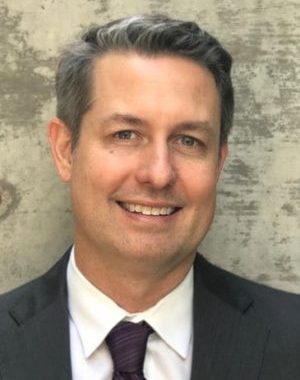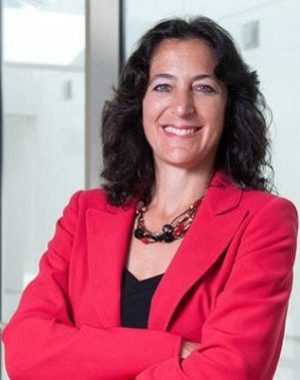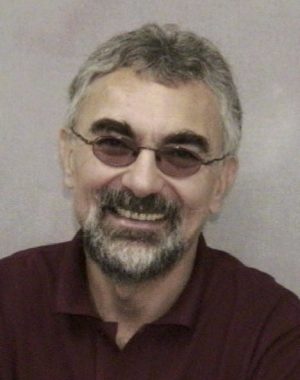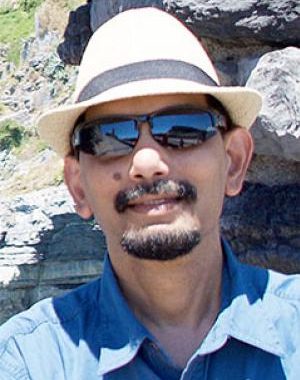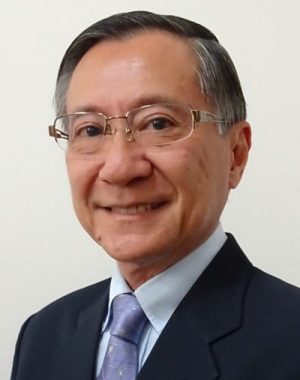-
Find Success Stories
Listen to our Speakers talk about their success stories with diverse challenges
-
Fresh Perspectives
Everyone has faced similar challenges and there are always different solutions
-
Ask Experts
Ask our expert questions and get to know more of their story
Speakers
Summary
We have written a blog summarizing our webinars, read about our speaker's suggestions!!
Read hereVolunteer
Are you interested in becoming part of our team? Feel free to join us on whatsapp, slack or just fill up the form.
Join the teamProgram
During this session IEEE ComSoc Young Professionas Committee members will share experiences as volunteers for ComSoc. Each member will share their perspective on volunteering. The team will also share future opportunities to volunteer with the ComSoc
7th June 2020, 4PM Dublin Time
Watch the webinar here(ICC Audience Only)
8th June 2020, 2 AM Dublin Time
Watch the webinar here(ICC Audience Only)
9th June 2020, 12 PM Dublin Time
Watch the webinar here(ICC Audience Only)
Have you ever failed in executing an idea because you couldn’t find the right help? Are you a recent graduate who is looking for their place in an established ecosystem? Learn about how to break boundaries and find the right partners for career growth. Jeff and Andrea will talk about their adventures from the days when they attended conferences as young professionals themselves.
Jeffrey Andrews received the B.S. in Engineering with High Distinction from Harvey Mudd College, and the M.S. and Ph.D. in Electrical Engineering from Stanford University. He is the Cockrell Family Endowed Chair in Engineering, in the Dept. of ECE at the University of Texas at Austin. He developed CDMA systems at Qualcomm from 1995-97, and has consulted for many technology companies and government agencies over the last two decades. Dr. Andrews is an ISI Highly Cited Researcher, and has received the 2019 IEEE Tomayisu Award, the 2015 Terman Award, a 2007 NSF CAREER award and has been co-author of fifteen best paper award recipients, including seven annual IEEE journal paper awards. He is co-author of the books Fundamentals of WiMAX and Fundamentals of LTE, and is an IEEE Fellow. He was a member of the Board of Governors of the IEEE Information Theory Society from 2013-18 and was the Editor-in-Chief of the IEEE Transactions on Wireless Communications from 2014-16.
Andrea Goldsmith is the Stephen Harris professor in the School of Engineering and a professor of Electrical Engineering at Stanford University. Her research interests are in information theory, communication theory, and signal processing, and their application to wireless communications, interconnected systems, and neuroscience. She founded and served as Chief Technical Officer of Plume WiFi (formerly Accelera, Inc.) and of Quantenna (QTNA), Inc, and she currently serves on the Board of Directors for Medtronic (MDT) and Crown Castle Inc (CCI). Dr. Goldsmith is a member of the National Academy of Engineering and the American Academy of Arts and Sciences, a Fellow of the IEEE and of Stanford, and has received several awards for her work, including the IEEE Sumner Technical Field Award, the ACM Athena Lecturer Award, the ComSoc Armstrong Technical Achievement Award, the WICE Mentoring Award, and the Silicon Valley/San Jose Business Journal’s Women of Influence Award. She is author of the book “Wireless Communications” and co-author of the books “MIMO Wireless Communications” and “Principles of Cognitive Radio,” all published by Cambridge University Press, as well as an inventor on 29 patents. She received the B.S., M.S. and Ph.D. degrees in Electrical Engineering from U.C. Berkeley.
Dr. Goldsmith has served on the Board of Governors for both the IEEE Information Theory and Communications Societies. She served as the President of the IEEE Information Theory Society in 2009, founded and chaired the student committee of the IEEE Information Theory society, and is the founding chair of the IEEE TAB Committee on Diversity and Inclusion and the IEEE Board Committee on Diversity, Inclusion, and Ethics. At Stanford she has served as Chair of Stanford’s Faculty Senate and for multiple terms as a Senator, and on its Advisory Board, Budget Group, Committee on Research, Planning and Policy Board, Commissions on Graduate and on Undergraduate Education, Faculty Women’s Forum Steering Committee, and Task Force on Women and Leadership.
7th June 2020, 5 PM Dublin Time
Watch the webinar here (ICC Audience Only)
Following a brief historical perspective we will speculate on the seven habits and traits of highly successful scientists, on how funding, patents and serendipity steers the main thrust of both applied and frontier researchand all that…
Mark Twain’s highly-quoted statement “It is difficult to make predictions, particularly about the future….” is particularly fitting in the context of high-risk/high-gain research. But high-gain research has a long gestation period and it might even face opposition, unless you want to champion it all the way to its full fruition within your own spin-off company. Naturally, this also involves trade-offs. However, there is strong evidence that open-minded collaborators tend to grow into successful scientists.
Please join us for an open-minded discussion and for sharpening up our research skills by peering beyond the horizon of classical radio communications into the alluring new world of ’rebooting communications and launching Communications V 2.0 in the context of quantum communications’…
Lajos Hanzo, (http:/www-mobile.ecs.soton.ac.uk, https://en.wikipedia.org/wiki/LajosHanzo) (FIEEE’04, Fellow of the Royal Academy of Engineering (FREng), of the IET and of EURASIP), received his Master degree and Doctorate in 1976 and 1983, respectively from the Technical University (TU) of Budapest. He was alsoawa rded the Doctor of Sciences (DSc) degree by the University of Southampton (2004) and Honorary Doctorates by the TU of Budapest (2009) and by the University of Edinburgh (2015). He is a Foreign Member of the Hungarian Academy of Sciences and a former Editor-in-Chief of the IEEE Press.
8th June 2020, 11 AM Dublin Time
Watch the webinar here(ICC Audience Only)
Have you ever gotten confused by funding guidelines? Do you know what makes a successful funding proposal? Deep Medhi will share insights on writing research proposals for various funding opportunities provided by agencies such as NSF.
Deepankar (Deep) Medhi joined NSF as a Program Director in the Computer & Network Systems (CNS) Division in August 2018. He manages wired networking research in the Networking Technologies and Systems (NeTS) program in CNS as well as several infrastructure programs such as NSF Future Cloud, Mid-Scale Research Infrastructure, and Cloud Access.
He is on leave as Curators’ Distinguished Professor in the Department of Computer Science and Electrical Engineering at the University of Missouri-Kansas City (UMKC) under the IPA program. He received B.Sc. in Mathematics from Cotton College, Gauhati University, India, M.Sc. in Mathematics from St. Stephen’s College, University of Delhi, India, and his M.S. and Ph.D. in Computer Sciences from the University of Wisconsin-Madison, USA. Prior to joining UMKC in 1989, he was a member of the technical staff at AT&T Bell Laboratories where he worked on teletraffic network routing and design. While at AT&T Bell Labs, he co-developed Facility Diverse Routing – a feature deployed in AT&T’s nationwide dynamic routing network.
His testbed and infrastructure experience include an IP/ATM multilayer resilient network testbed development (funded by DARPA), feasibility study on MPLS (for Sprint’s network), Broadband Fixed-wireless protocol and feasibility analysis (for Sprint), Great Plains Environment for Network Innovation (GpENI) testbed development, and several networking experimentations on the GENI testbed.
His research interests are in network resilience, network routing and optimization, traffic engineering and design, network management, data center networking, and video quality-of-experience.
He co-authored the books, “Routing, Flow, and Capacity Design in Communication and Computer Networks” (2004) and “Network Routing: Algorithms, Protocols, and Architectures” (1st edition, 2007; 2nd edition, 2017), both published by Morgan Kauffman/Elsevier.
He is a Fellow of the Institute of Electrical and Electronics Engineers (IEEE).
9th June 2020, 10 PM Dublin Time
Watch the webinar here(ICC Audience Only)
In most cases, to carry out various research and education (R&E) related activities, it is necessary to prepare and submit grant proposals, either internally within the organization or to external grant agencies, in order to obtain the necessary resources to conduct such R&E work. The preparation of grant proposals can be an onerous task for those not familiar with such procedures. This talk will highlight and share some useful tips on how to go about preparing grant proposals, what to look out for and what to avoid. The sharing session is intended to be informal and should be beneficial to those who are new to preparing grant proposals.
Lawrence Wai-Choong Wong is Emeritus Professor at the Department of Electrical and Computer Engineering, National University of Singapore (NUS). He received the B.Sc. (1st class Honors) and Ph.D. degrees in Electronic and Electrical Engineering from Loughborough University, UK. His research interests include wireless and sensor networks, ambient intelligent platforms, indoor localization and source matched transmission techniques with over 300 publications and 5 patents in these areas. He has been actively involved in IEEE activities since 1984, taking on numerous volunteer leadership positions, including VP-MGA, IEEE Region 10 Director, IEEE Singapore Section Chair, IEEE Singapore Computer Chapter Chair, Executive Chair of IEEE Global Communications Conference (Globecom 2017), and general chair of numerous IEEE conferences.
10th June 2020, 12 PM Dublin Time
Watch the webinar here(ICC Audience Only)
Contact us
If you have any questions, dont hesitate to reach out to us at yp@comsoc.org

